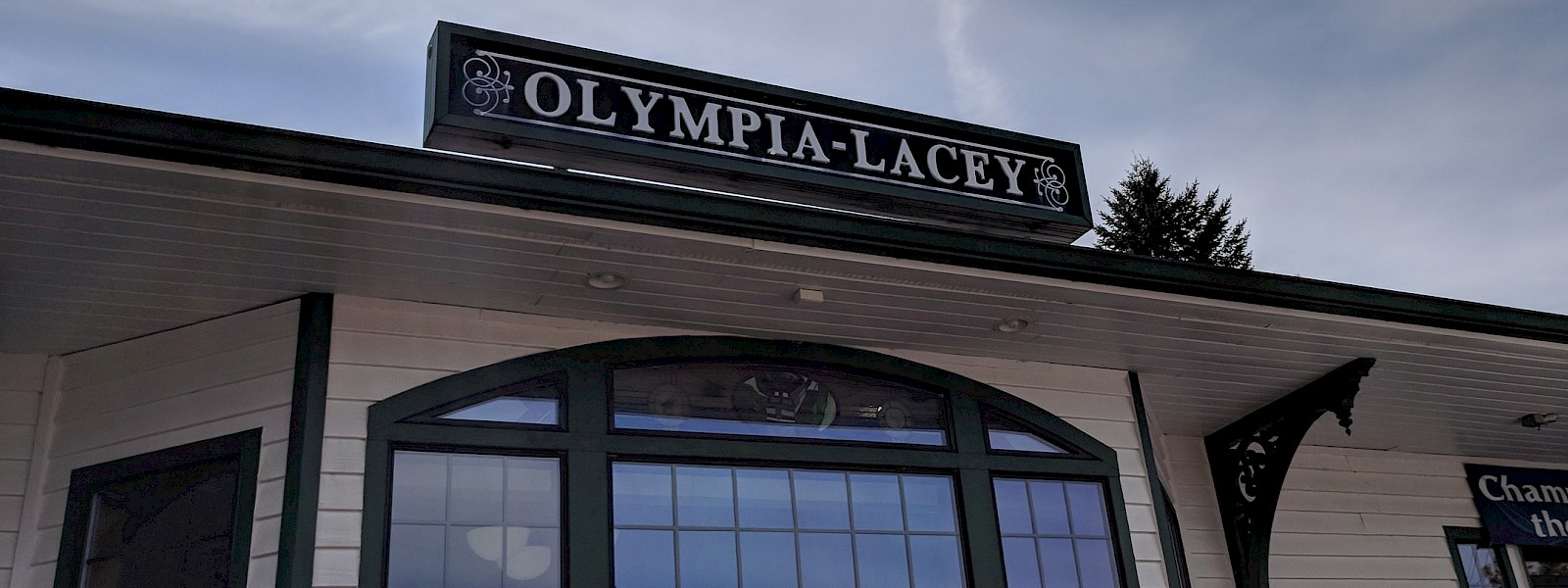A Regional Coalition of Transportation, Environmental, Health Care, Labor and Community Organizations Releases Updated Policy Recommendations Supporting Rail
A cross-border coalition of organizations have jointly endorsed a statement of policy recommendations focusing on the importance of rail in meeting the Greater Northwest’s goals of improved mobility, economic growth, environmental sustainability and socio-economic equity.
All Aboard Northwest, All Aboard Washington, the Association of Oregon Rail and Transit Advocates (AORTA) and Transport Action British Columbia (TABC) are advancing a vision of a strengthened regional travel network, with fast and more frequent rail service in the Greater Northwest region as its backbone, and call on all three jurisdictions to work together to swiftly bring past promises of improved passenger rail to fruition.
The statement is an updated version of the January 2022 “Washington State Rail Policy Recommendations” statement which has been endorsed by
|
All Aboard Northwest |
League of Women Voters of Washington |
Improved rail transportation is a solution to both transportation equity and climate challenges. Investment in rail provides benefits such as jobs, equitable access, improved mobility, health and safety of railway workers and the public, reduced greenhouse gas emissions and pollution, reduced highway infrastructure damage and congestion.
Our Legislatures need to recognize the importance of a robust rail transportation appropriation that positions the Greater Northwest to leverage grant opportunities such as offered by the Infrastructure Investment and Jobs Act given that most federal grant opportunities require matching funds. The states and provinces in our region must be proactive in developing project plans that are ready for construction while funding is still available.
We support Washington and Oregon’s Governors and our respective Legislatures’ commitments to clean transportation. However, statistics show that neither state is on track to fully achieve its climate goal of reducing greenhouse gas emissions by almost 50% by 2030.. Emissions should be decreasing by now and will need to be cut by almost half by 2030, if warming is to be limited to 1.5°C.. Rail must be the backbone of our surface transportation network because of its energy efficiency, low carbon emissions, electrification potential, and reduction in vehicle miles traveled.
The full statement (ver. 13) is linked here.
“We are pleased to work with our colleagues across the Pacific Northwest to advocate for improved cross-border rail as a backbone of an environmentally responsible public transport and logistics system for the whole region, one that increases economic opportunity and inclusivity, while also strengthening social and cultural connections,” said Terry Johnson, President of Transport Action Canada. “The Canadian federal government and the Province of British Columbia must make good their promises to mitigate climate change by investing in low-emissions and land-use-efficient rail networks. There have long been critical infrastructure needs that have been talked about but not acted upon, most importantly the replacement of the New Westminster Rail Bridge, which has been identified by the State of Washington as the key stumbling block to expanding Amtrak Cascades service. There are funding sources such as the federal National Trade Corridors fund, and our governments must collaborate with Washington and Oregon to deliver action, not just words.”
“We are very pleased that leading transportation, environmental, health care and community organizations have worked together to highlight the importance of improving rail in our communities,” said Charles Hamilton, Vide-President of All Aboard Northwest and Co-Executive Director of All Aboard Washington. “We look forward to other organizations joining us in endorsing these policy recommendations.”
About All Aboard Northwest, All Aboard Washington and AORTA
All Aboard Northwest advocates for the needs of rail passengers, especially on a regional scale over state lines, and coordinates with infrastructure and transportation interests to strengthen relationships between existing groups to bring economic, environmental, and equity benefits to our citizens. Our goal is to build a transportation network that will allow anyone to get where they need to go – work, school, medical care, family and friends – even if they don’t use a car. Non-drivers are a large and increasing fraction of the population, including the young, the old, the disabled, the poor, and those who are concerned about the planet’s future.
For nearly fifty years, both All Aboard Washington (AAWA) and AORTA (Association of Oregon Rail and Transit Advocates) have promoted better passenger and freight rail service in the Pacific Northwest. We champion safe, reliable, frequent, competitive, and convenient passenger rail services that meet the needs of all Washingtonians and Oregonians. We are especially active supporters of intercity passenger rail service and intermodal connections to local transit.
For more information or to have your group join our coalition, please contact us.
